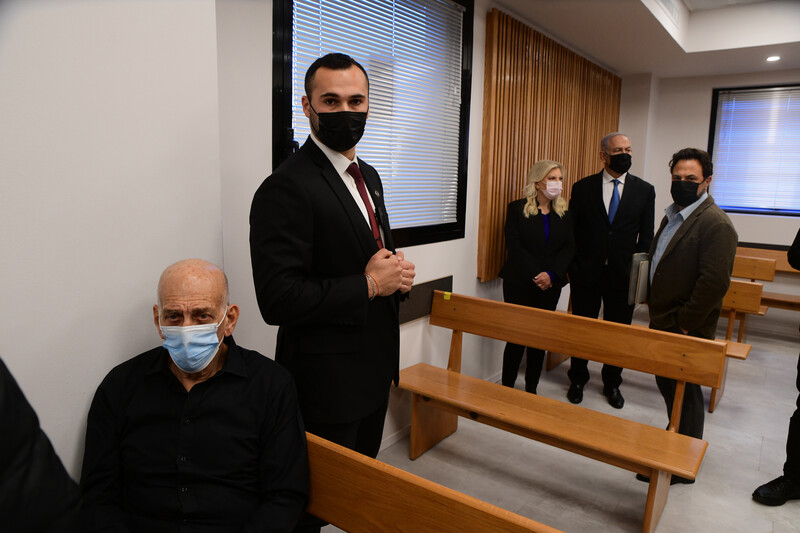Media Watch 25 April 2022

Former Israeli Prime Minister Ehud Olmert quickly agreed with NPR’s Daniel Estrin on the disagreeability of equal rights for Palestinians in one state.
UPIDaniel Estrin interviewed former Israeli Prime Minister Ehud Olmert last Tuesday for National Public Radio’s program All Things Considered.
Estrin, NPR’s international correspondent in Jerusalem, pushed his view that all Israeli leaders oppose equal rights in one state.
Olmert declared that while mayor of Jerusalem he realized that “the dream of controlling millions of Palestinians within the state of Israel without giving them the [sic] equal rights” had a “built-in contradiction” and that “the sooner we separate from the Palestinians, the better we are.”
Estrin then interrupted with his own dishonest and racist framing just as Olmert opined that one option would be “integrating all of the Palestinians into the state of Israel and giving them full political rights and civil rights…”
Here, Estrin interjected: “Which I don’t think you or any Israeli leader would agree to do.” Note that the official NPR transcript puts it as: “Which I don’t think you or any Israeli leader would be trying to do.”
Olmert then confirmed this was so.
But the claim is untrue.
What of the leaders and political activists for Palestinian citizens of Israel? Does Estrin think all of them would reject equal rights for Palestinians in one state?
It’s as if these Palestinians don’t even exist and that only the political thinking of Israeli leaders who are Jewish is worth noting. There are also Jewish leaders in Israel, mostly outside the Knesset, Israel’s parliament, who are open to equal rights for Palestinians in one state.
Whitewashing Palestinian citizens of Israel – approximately 20 percent of Israel’s population – is not responsible journalism.Furthermore, if Palestinians in the occupied territories are included then the Palestinian and Jewish populations are close to equal – though already in 2005 the US State Department was indicating that the Palestinian population is the larger one.
This is not the first time that Estrin has excluded Palestinian viewpoints.
I wrote last year about his failure to include Palestinian voices in his coverage of Israeli human rights group B’Tselem’s report on Israeli apartheid.
Now he’s brushed aside Palestinian – and Jewish – leaders advocating for equal rights in one state.
NPR did not respond to questions from The Electronic Intifada.
Estrin did better in the three days after his whitewashing of voices for equal rights with a three-part series last week on the difficulty Palestinians have getting out of Gaza for medical treatment.
Even so, when he says that “Hamas took control there [in Gaza] about 15 years ago” he ignores the fact that Hamas won parliamentary elections and faced US-directed efforts to provide third-party weapons for a Fatah coup attempt in Gaza against Hamas.His misleading spin on Gaza’s politics and “the system” – a euphemism for permanent Israeli occupation and blockade within an apartheid framework – being “resistant to change” cannot be ignored. Yet it can be acknowledged that highlighting the agony and difficulties faced by Palestinian medical patients living under an Israeli-imposed blockade has merit for American listeners too infrequently exposed to these realities by the mainstream media.
Humanizing Palestinians under an American-financed Israeli occupation is too infrequent an occurrence, but more should be done by NPR to get the political context right on those occasions when coverage is provided.




